Most homeowners can probably agree with Minister for Energy and Resources Lily D’Ambrosio’s assertion that…
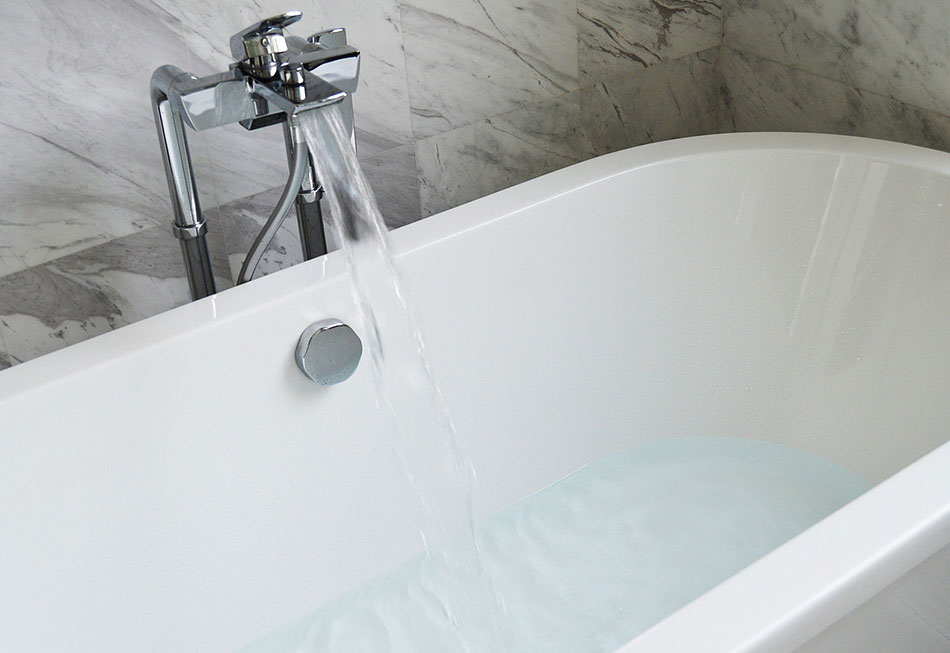
Solar Hot Water vs Heat Pump Hot Water: Which Is Better For Your New Home Build?
As the home of your dreams becomes more and more of a reality, you have a lot of decisions to make. One of the most important ones is how you are going to heat your water.
You’ll be reminded of your decision—for better or worse—every time you run the shower, wash your dishes, or throw in a load of laundry.
Pivot Homes has been building in the Geelong and Bellarine Peninsula region since 1990, and we have first hand experience with all the changes in water heating systems over the years. In the past, electric and gas water heaters were the norm. But they are old, inefficient technology that is bad for the environment and worse on your wallet.
The modern choice for homeowners comes down to solar hot water versus heat pump hot water. We’ll help you decide which is best for your new home by comparing:
- Installation costs
- Maintenance
- Energy Efficiency
- Noise
- Environmental friendliness
- And more
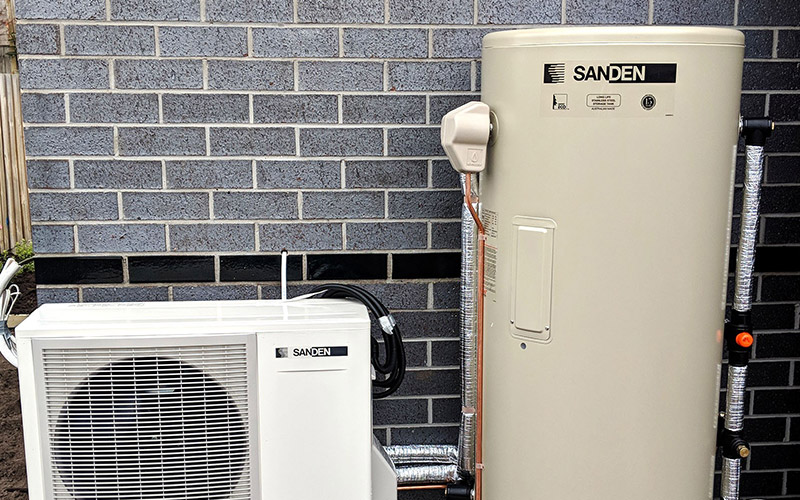
Contents:
Major Differences Between Solar and Heat Pump Hot Water
We will get into the detailed pros and cons of solar hot water versus heat pumps down below. But first, let’s take a quick look at the most notable differences between the two systems:
Initial Investment
Heat pumps win in the upfront cost category.
A solar hot water system can cost you almost twice as much as a similar setup with a heat pump. If the immediate price tag is your most important consideration, heat pumps are the right choice.
Environmental Friendliness
Solar energy wins out slightly in the green energy category.
Heat pumps contribute much less to CO2 emissions than traditional hot water systems, but they still don’t beat solar. However, because most solar systems require a gas or electric backup (called a “booster”), the race is pretty close.
Noise
Solar wins this one without a doubt. Heat pumps aren’t incredibly noisy, but solar is as quiet as a hot water system can get.
Availability
Solar hot water isn’t a possibility for every home, so heat pumps win this one. A heat pump can be installed in practically any home, but solar collectors need to consider factors like roof facing and shade.
Efficiency
This is a difficult category to measure because of all the factors to consider. Strictly speaking, solar energy is more efficient. It costs the average home about $150 annually to run a solar hot water system versus about $280 to run a heat pump.
However, this doesn’t necessarily mean that solar energy is cheaper. Because of higher upfront costs and maintenance issues, the race is a lot closer than the numbers make it out to be.
Repair and Maintenance
Heat pumps are easier and less expensive to maintain. Solar loses in the lifetime maintenance category due to several factors:
- Specialised technology requires specialised service.
- Roof installation opens up potential for roof leaks and similar issues.
- Exposure to wind and the elements increases chance of solar panel damage.
In our experience, homeowners who choose heat pumps face far less headaches down the road when it comes to keeping their system in operation.

How a Solar Hot Water System Works
Solar hot water systems draw energy from the sun via solar panels that are typically installed on your roof. While north facing roofs are best for solar panels, west facing roofs can be a suitable alternative under the proper conditions (however, this often requires a larger roof).
An alternative form of solar hot water relies instead on evacuated tubes that serve as solar energy collectors. These tubes have greater surface area, so they are more efficient at collecting energy.
However the energy is collected, it is immediately used to heat the hot water for your storage tank which supplies the rest of the house with water. Obviously, the system relies on the sun to operate. If your tank runs dry at night or during a cloudy day, you will need to rely on a backup gas or electric system.
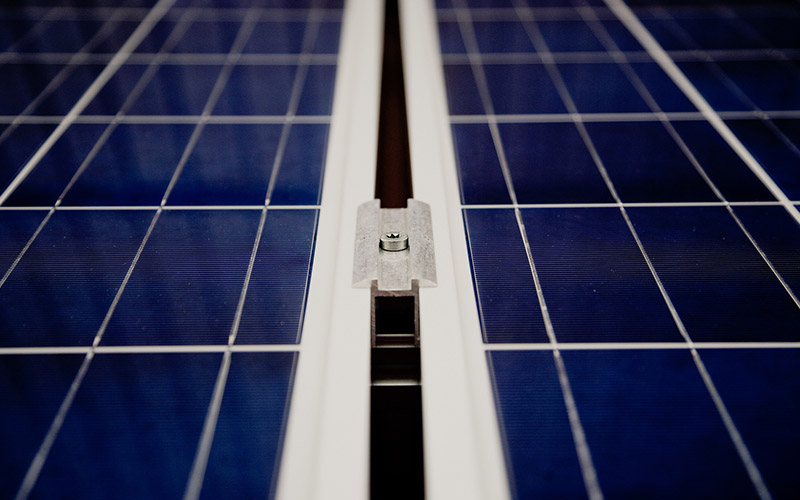
Advantages of Solar Hot Water
“Free” energy. Solar power is self-sufficient and renewable. No one can charge you for harnessing energy from the sun. In one sense, this means you aren’t paying anything for your hot water. Of course, you have to factor in costs like maintenance and repairs, so it isn’t completely free. Furthermore, high upfront costs mean that it will be a few years before you are actually making money back on your investment.
Environmentally friendly. After energy savings, going green is by far the most common reason that homeowners choose solar. Because it requires no electricity to run, a solar system is the most environmentally friendly method of heating water. The only times you will need to rely on non-renewable energy sources is during the night or when the sun is blocked by rain, clouds, or other weather.
Noiseless. A solar system is mostly inaudible. Generally, if it is making much noticeable noise, it’s a sign that something is wrong. If you value a quiet home or just want to cut down on noise pollution in the neighborhood, solar is a good choice.
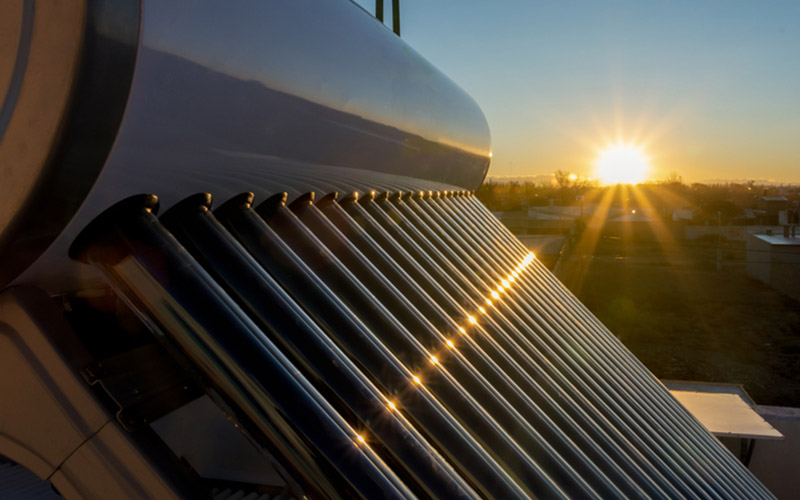
Disadvantages of Solar Hot Water
Weather-dependent. While the sun is a free source of energy, it also isn’t always available. You obviously can’t collect energy at night. But rainy or cloudy days also mean no solar hot water.
Not for all homes. If you have tall trees shading your home, solar panels might be unrealistic. Likewise, if you don’t have a roof facing the right way, solar may not be efficient enough to offset the costs.
Expensive upfront. Solar system installation can cost almost twice as much as a heat pump. According to Canstar Blue, a new system can cost up to $7,000. A heat pump, alternatively, runs between $3,000 and $4,000.
Troublesome maintenance. Solar technology is more complex and relatively new compared to heat pumps. This means that parts are harder to come by, as is the expertise required for proper maintenance. Repairs will also be different depending on if you have panels or evacuated tubes.
More potential for damage. Heat pump systems are generally only going to need repairs due to use over time. Because solar collectors are installed on your roof, however, they are more vulnerable to damage from wind and debris.
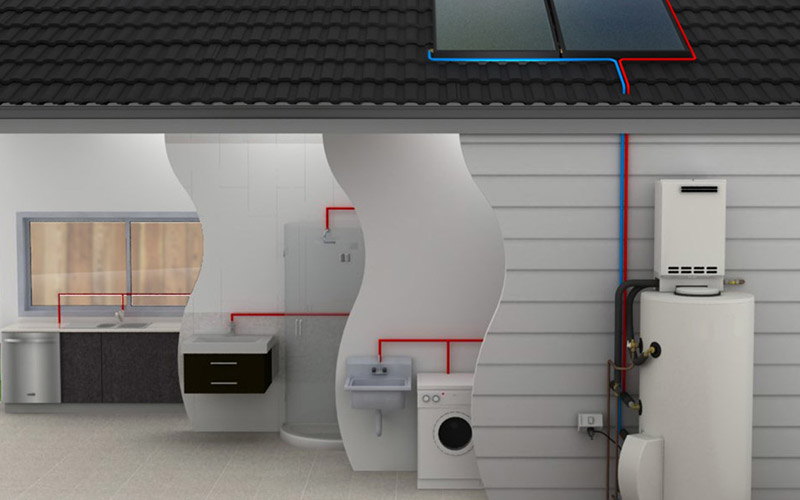
How a Heat Pump Hot Water System Works
As the name implies, heat pumps work by moving heat from one location to another. Specifically, they extract heat from the outside air and transfer it into your water tank, leaving you with a steady supply of hot water for showers, dishwashing, cooking, and all your other household needs.
While operating the heat pump still relies on electricity, they are much more efficient than outdated electric water heater systems. This is because of two important elements: refrigerant and conduction.
- Refrigerant is the compound that fills the coils inside your heat pump. Its primary job is to facilitate heat transfer so that the energy from the outside air can be used in your hot water system.
- Conduction is the process of heat energy being transferred between surfaces of differing temperature. Energy always moves from hot to cold. During cooler months, though, your heat pump still works even though the air outside is cold. This is because the refrigerant is even colder, so it is still able to draw heat from the air.
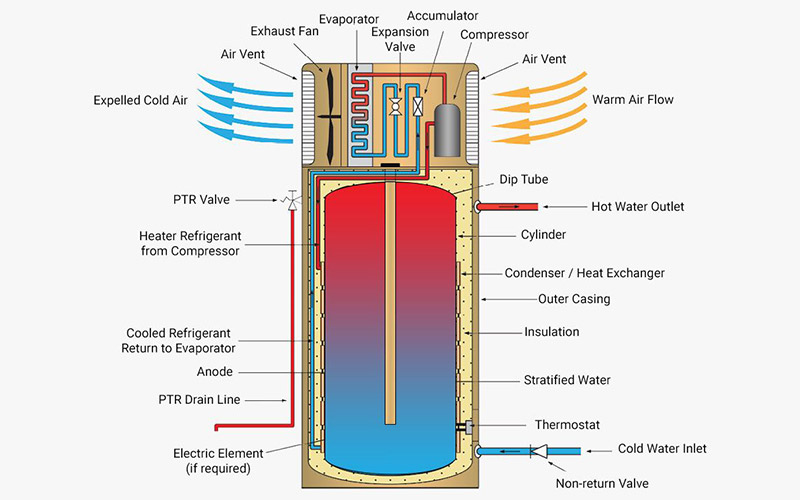
Advantages of Heat Pump Hot Water
Universal. Pretty much any home can work on a heat pump system. You don’t need to worry about tree coverage or which way your roof faces. Furthermore, a good heat pump works under any weather conditions. It will take a little more energy to heat hot water in the cold months, but its functionality doesn’t stop during rainy or cloudy days.
Half the installation cost of solar. There may come a day when solar technology has advanced far enough that it is more affordable. But that day is not today. While solar systems are often advertised as free energy, keep in mind that it will be several years before you recoup the additional expense.
Simpler maintenance. You can usually get regular maintenance and repairs for a heat pump from any HVAC company. For solar systems, you will need to find a specialist. Furthermore, because solar panels are exposed to the elements, they are just more likely to require cleaning. Since they are attached to the roof, there is also more potential for roof-related repairs as well.
Easily hidden. A heat pump can usually be placed out of sight so that it doesn’t impact your home aesthetics much or at all. Solar collectors are almost universally installed on the roof, unless you have lots of open field space. Many homeowners find them a bit of an eyesore.
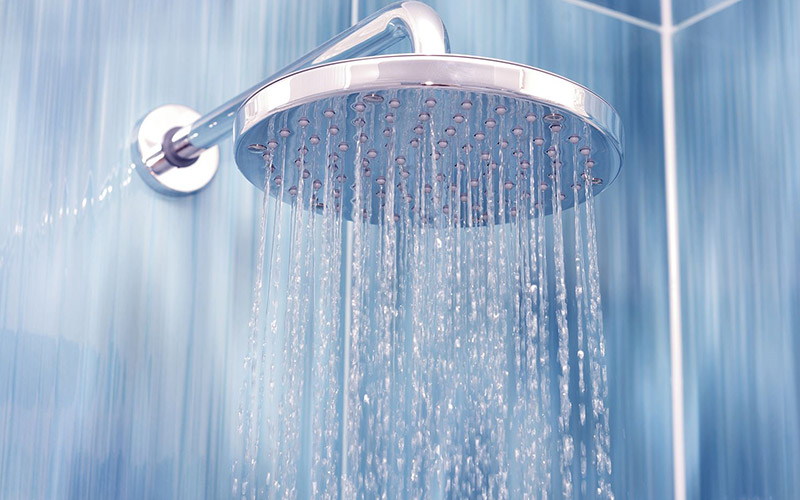
Disadvantages of Heat Pump Hot Water
Noisy. There is no hiding the fact that heat pumps are noisier than solar panels. However, professional installers will know how to place them effectively to minimise disturbance to you and neighbors.
Less environmentally friendly. While solar is certainly the greenest way to heat residential hot water, heat pumps are not far off. For every 1 kilowatt of energy a heat pump system uses, it generates 3 kilowatts of heat on average. They are about 3 to 7 times as efficient as electric or gas water heaters.
More expensive to run. While solar has higher upfront costs, heat pumps cost more to operate. However, as just mentioned, they are much more efficient with energy than most non-solar alternatives.
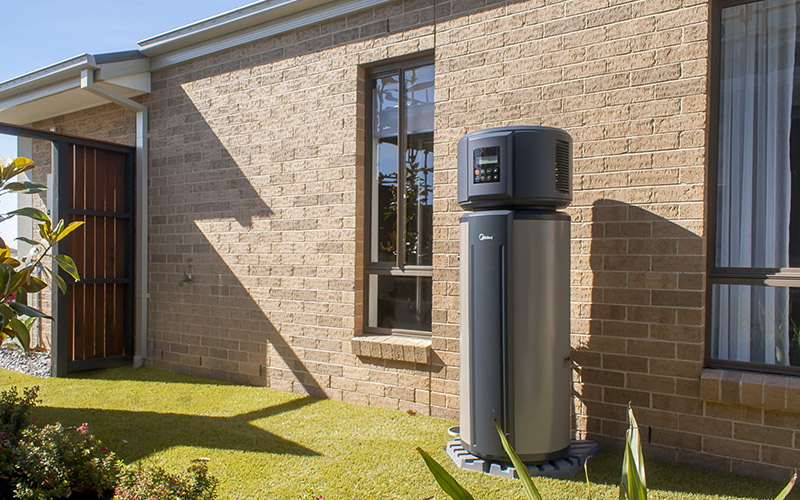
Solar Vs Heat Pump FAQs
Now that we’ve covered the pros and cons of both systems, let’s dive a little deeper. Here are some of the most important questions to consider as you narrow down your decision.
Is a heat pump more efficient than solar hot water?
Not usually. If both are running under optimal conditions, a solar system uses less energy. This is because a heat pump will always need some electricity to run, but solar systems will often be able to generate all the energy they need to operate self-sufficiently.
The exception is during night or cloudy weather. If there is limited access to the sun, obviously your solar panels can’t generate energy. Therefore, you will have to rely on an electric or gas booster,both of which run much less efficiently than a heat pump.
So, for example, if everyone in your house tends to shower in the early morning or you like to run the dishwasher at night, your solar system won’t be saving you on energy at these times.
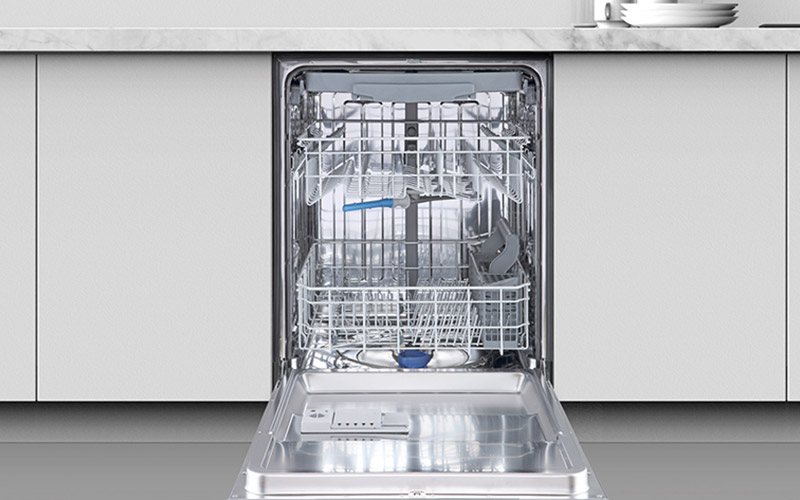
Is a solar hot water system worth it?
It depends. Under ideal conditions, solar hot water can definitely pay for itself. If you have optimal roof facing, limited shade, agreeable climate, and tend to use most of your hot water during the day—a solar system could be a great investment.
The most important consideration is how long it will take you to recoup the cost of installation. If your solar hot water costs you an extra $3,000 upfront but only saves you $300 per year, you won’t see a return on your investment for 10 years.
For this reason, it is vital that you work with your custom home designer in order to weigh the costs and benefits of all the available hot water systems.

What is the lifetime of solar hot water versus a heat pump?
Heat pumps have an average lifetime of 15 years, whereas most solar water systems will last 20 before needing to be replaced.
To get the longest life out of either system, be sure to keep up with regularly scheduled maintenance. Both hot water systems should be serviced once per year. If you have solar panels, they should also be professionally cleaned twice annually.
Can I use both systems?
Absolutely! And this is one of the best options for homeowners who want to maximise savings and environmental friendliness.
There are two common methods, and finding the right one should be decided in consultation with an expert. To sum the options up:
- Heat pump booster: In this system, the solar collectors provide the primary source of hot water, and the heat pump is used as the backup when the sun is unavailable due to weather or time of day.
- Solar powered heat pump: Another option is to use solar panels not to generate hot water but to power the heat pump. This offsets the cost of providing electricity during peak sunlight hours.
It can be expensive to build a new home with a hybrid system like this, so most homeowners prefer to start with a heat pump and have solar installed somewhere down the line.
How do greenhouse gas emissions compare?
A residential solar hot water heater with an electric booster will create, on average, about 0.4 tonnes of CO2 emissions every year. With a gas booster, the rate is 0.2 tonnes.
A heat pump, by comparison, produces about 0.8 tonnes.
It’s worth noting that both systems are lightyears ahead of electric hot water heaters, which release a massive 3 tonnes of CO2 annually on average.
The absolute best option when it comes to limiting emissions is a heat pump powered by solar, which averages just 0.1 tonnes a year.
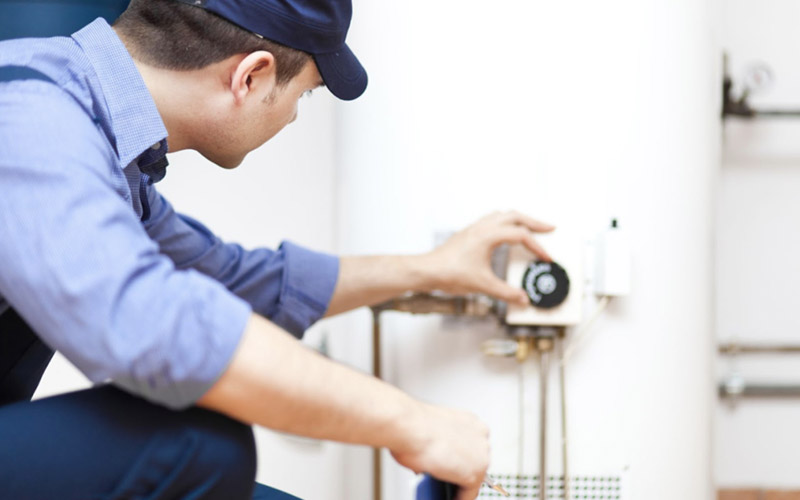
How To Choose The Right Hot Water System For Your New Home
In the end, there isn’t always a clear cut choice on what is best: solar hot water versus heat pump hot water. It depends on your wants, your needs, and your home.
To sum up all the advice we have given above:
Choose solar if…
- You can afford the increased upfront costs.
- You don’t mind the potential of more maintenance and repairs.
- You want the greenest possible hot water source.
- Your house isn’t shaded.
- You have a north facing roof.
- You don’t use much hot water at night or early morning.
Choose a heat pump if…
- You want lower installation and maintenance costs.
- You don’t mind a little bit of noise.
- You are okay with slightly lower efficiency.
- You don’t want anything extra installed on your roof.
- You tend to use hot water during dark hours.
Trust An Expert To Help You Decide
Obviously, there are a lot of factors that are difficult to gauge: How do you know if your roof is north-facing enough for solar? How much shade is too much? What will operation costs look like for your family?
If you are overwhelmed by all the choices, let Pivot Homes help you decide the best hot water system for your new home. We’ve been doing this for decades, and we know how both systems hold up to the weather in the Geelong and Bellarine Peninsula region.
Contact us today to learn more about how we can help.

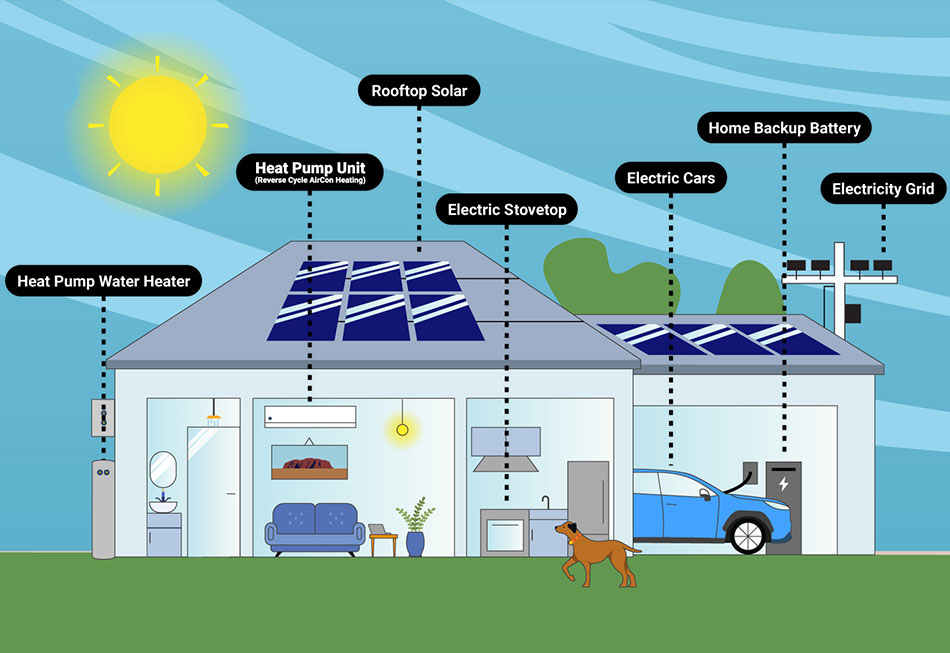
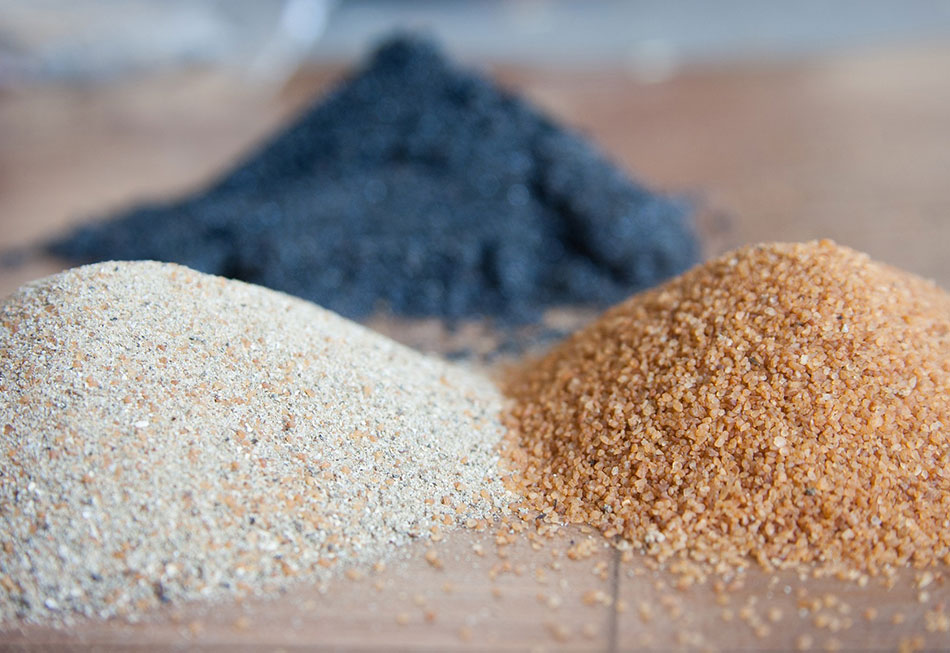
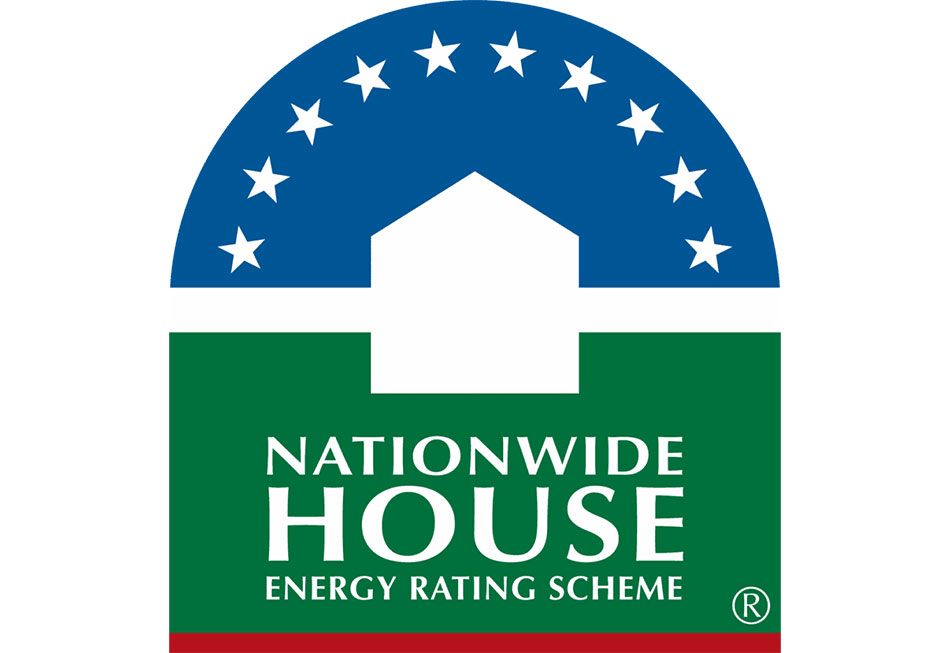
This Post Has 0 Comments